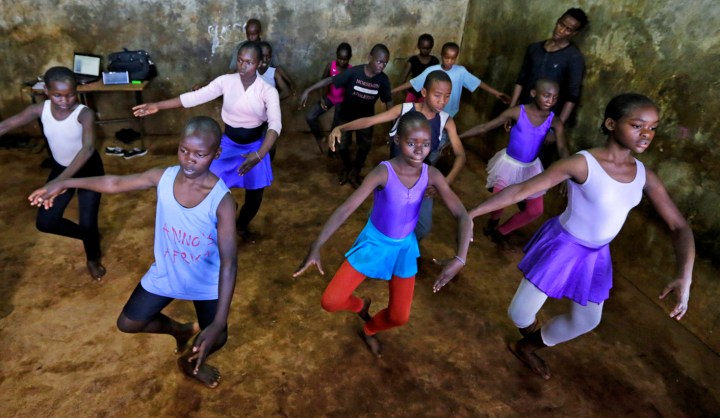South Africa
Unicef report: Africa’s growing child population holds the key to the continent’s success

With the projected expansion in Africa’s child population, an increase in education and health personnel will be necessary by 2030. By ORATNEG LEPODISE.
Africa is going to need 11-million skilled education and health personnel by 2030. And that’s just to meet the current projected demand created by the “unprecedented” increase in its child population, a new UNICEF report revealed.
According to Generation 2030 Africa 2.0: Prioritising investment in children to reap the demographic dividend, Africa’s child population is projected to increase by 170-million between now and 2030, taking the number of the continent’s under-18 population to 750-million.
The report, released on Thursday, indicates that almost half of the continent’s population is under 18 and children comprise the majority of the population.
The change in demographics is being driven by more children living beyond their fifth birthday, high fertility rates and a surge in the number of women of reproductive age, the report noted.
Identifying three key areas for investment – healthcare, education and the protection and empowerment of women and girls – the report states that the continent will have to add 5.6-million new health workers and 5.8-million new teachers by 2030 in order to meet minimum international standards in healthcare and best practice targets in education.
“Investing in health, protection and education must become an absolute priority for Africa between now and 2030,” said Leila Pakkala, UNICEF’s Regional Director for eastern and southern Africa.
In 1950, Africa’s child population was two thirds the size of Europe’s, one fifth the size of Asia’s and one ninth of the world’s but by 2016 the continent’s child population was already four times larger than Europe’s and approximately a quarter of the total world child population. It is projected that by 2030 it will be five times larger than Europe’s, rising to seven times greater by 2050.
“Imagine the potential of one billion children,” said Marie-Pierre Poirier, UNICEF’s Regional Director for West and Central Africa.
According to the report, between 2015 and 2030, Africa will see a 33% increase in the primary school age population, from 189-million to 251-million. The highest increases will take place in West Africa (22-million) and Eastern Africa (18-million). And while currently 40% of Africa’s population lives in cities, compared to just 14% in 1950, by the late 2030s, the majority of its population will live in urban areas. On current trends, by 2050 almost 60% of Africa’s population will live in cities.
“If Africa steps up its investments in children and youth now, transforms its education systems and empowers women and girls to participate fully in community, workplace and political life, it will be able to reap faster, deeper and longer dividends from its demographic transition,” Poirier said in a statement announcing the findings of the report.
The report warns that how the continent responds now will determine whether it reaps the benefit of this transition in demographics or whether this “once-in-a-generation opportunity is replaced by a demographic disaster, characterised by unemployment and instability”.
The report recommends three main policy actions to create the socio-economic conditions for Africa’s coming generation:
- Improve health, social welfare and protection services to meet international standards or beyond in countries close to attaining them.
- Adapt Africa’s educational skills and vocational learning systems through curricula reform and access to technology to enhance learning outcomes, so Africa’s children and youth can meet the needs of the 21st century labour market.
- Secure and ensure the right to protection from violence, exploitation, child marriage and abuse, and remove barriers preventing women and girls from participating fully in community, workshop and political life with enhanced access to reproductive health services.
“Building on the remarkable gains for children in Africa over the past 25 years, the potential of one billion children is vast… Africa can reap a demographic dividend that will see per capita incomes increase by up to four-fold by 2050, if policies which promote job growth are made alongside international and domestic investments in Africa’s human capital,” the report reads. DM
Photo: Young ballerinas practice in a classroom at Spurgeons Academy, which provides education for free to about 427 orphans and less privileged children from Kibera slums through charity in Nairobi, Kenya, 18 January 2017. EPA/DANIEL IRUNGU


















 Become an Insider
Become an Insider